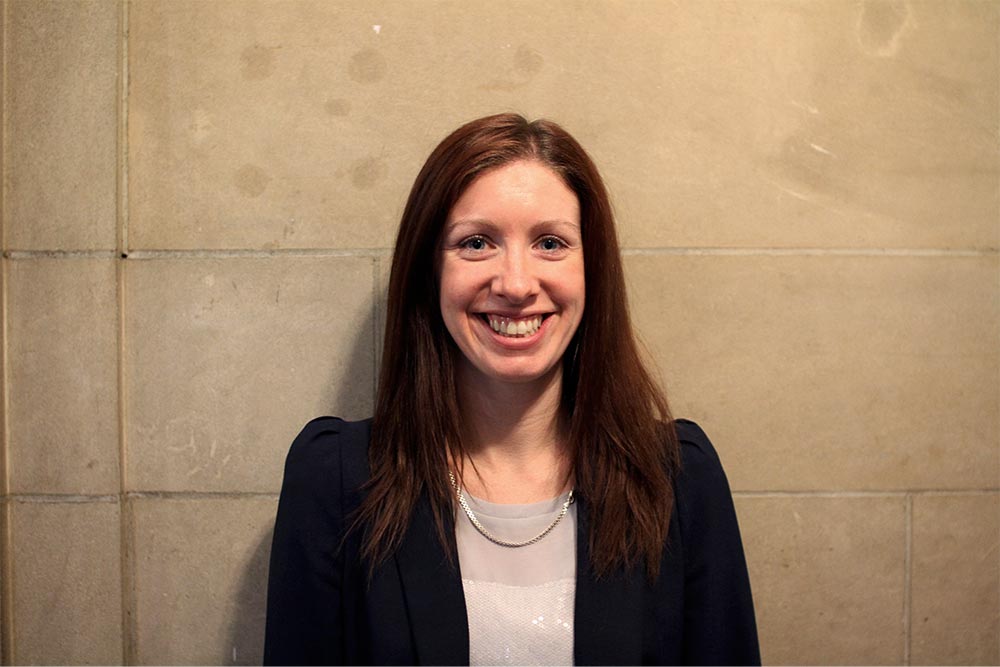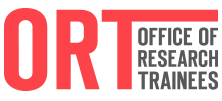Melissa Kozak

What did you study in University?
I did my undergrad degree at Queen’s University in Mechanical Engineering, and then after working in the automotive industry for a couple of years, I decided it was time to go back to school. I completed the Clinical Engineering Master of Health Science degree offered by the University of Toronto
Describe your training at UHN.
As part of the Clinical Engineering program I had the opportunity to complete 3 internships, 2 of which I did right here at UHN. My first UHN internship was with Dr. Catriona Steele of the Swallowing Rehab Research Lab at TRI, during which I designed a biofeedback user interface for people with dysphagia. My second UHN internship was with Dr. Patricia Trbovich of HumanEra, for which I observed nurses in two chemotherapy daycare centres to look at interruptions. Under the supervision of Dr. Tony Easty, a senior scientist at TGRI and head of HumanEra at UHN, I completed my thesis entitled “Applying Human Factors and the Resident Assessment Instrument Home Care (RAI-HC): An Examination of Failure Modes, Causes, Effects and Recommendations in the Home Care Environment”.
What is HumanEra?
HumanEra, the research team that I am a part of here at UHN, believes that to err is human, and that errors are consequences rather than causes of unsafe systems. We want to usher in a new era where our healthcare system is designed to take into account human strengths and limitations, and to support us in those areas that we as human beings find challenging.
What is a Human Factors Analyst?
A human factors analyst looks at how people interact both physically and psychologically with the complex systems they live and work within, and tries to optimize those systems so they are as safe and as user-friendly as possible. In the world of healthcare, this means I analyze different healthcare processes (like the ordering, mixing and delivery of chemotherapy to patients), different technologies (like different infusion pumps or software interfaces), and different environments (like acute care, chemotherapy daycare and home care) to uncover features of the system that could lead to issues or errors. Once those potential issues have been uncovered, we make recommendations to try to minimize or mitigate those potential sources of error.
What is a typical day like for you?
We work on a project-by-project basis and often have several studies ongoing at once. There is a lot of planning involved for new studies in terms of research ethics, protocols, and data collection tools. We use some unique research methods, so I often have the opportunity to get out into the field and shadow front line staff, which is fascinating. I have shadowed in clinics, chemotherapy treatment areas, pharmacies, and pharmacy clean rooms, and have learned from nurses, oncologists, pharmacists, pharmacy technicians, clerks, and aides.
We also run studies in our state of the art simulation and usability labs right here at UHN. We mock up healthcare settings, recruit real users, and have them run through representative scenarios with a new device, process, or mitigation strategy to see what happens. These simulations can be quite complex, involving many team members as actors, data collectors, and special effects coordinators (like lighting, interruptions, and pump alarms) to make the scenarios seem as real as possible.
Once we’ve collected our data, we analyze it using process flow diagrams, failure mode and effects analysis (FMEA), and a host of other hybrid analysis approaches. We create a report, and then aim to publish our findings. We also spend quite a bit of time presenting both our findings, and a ‘Human Factors 101’ course to front line staff.
What is the best part of your job?
As human factors people we often get to be a voice for front line staff to help communicate the pressures and challenges they are facing while trying to provide the best possible care. We get to learn about the roles of front line staff and see the compassion and dedication they have to their patients.
What is the worst part of your job?
The worst part of my job is learning of adverse events that have affected patients, and finding that front line staff have either been “blamed and shamed” or haven’t reported an adverse event for fear of being reprimanded. Our healthcare system has come a long way, but sometimes we need to be reminded that we are all human, and that we all make mistakes. To ensure the safety of our patients we have to learn as much as we can from adverse events and near misses to know where system improvements are required.
James Reason, a renowned British psychologist has a brilliant quote that states, “we cannot change the human condition, but we can change the conditions under which humans work”, and I really think we have to keep this in mind in order to improve the safety of our patients.
Do you have any advice for trainees interested in pursuing a career in this field?
If you are interested in pursuing a career in this field, I’d highly recommend the Clinical Engineering program at the U of T. You can also join groups like the Human Factors and Ergonomics Society (HFES), which has an annual healthcare symposium. The book I’d most recommend if you want to get a taste of human factors in your everyday life is “The Human Factor” by Kim Vicente. Finally, if you want to learn more about our work, check out http://www.humanera.ca.

